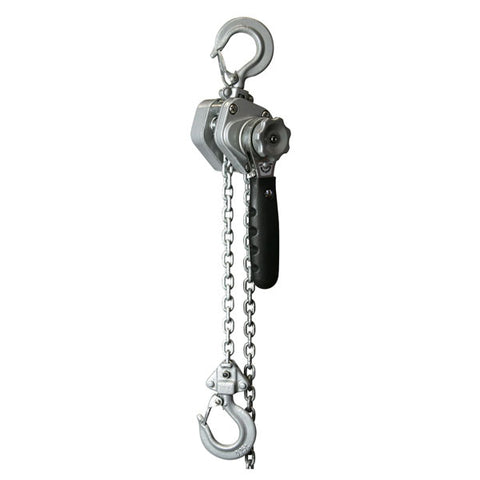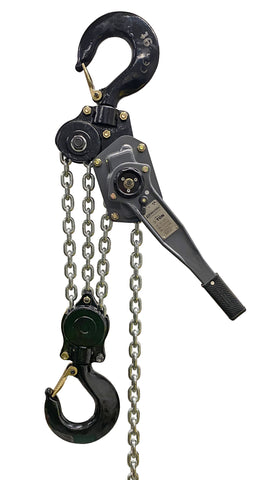When it comes to lifting and moving heavy loads in the United States, lever hoists are indispensable tools. Whether you're a professional in the construction industry, a DIY enthusiast, or simply someone who needs to tackle heavy lifting tasks, choosing the right lever hoist is crucial for safety and efficiency. In this blog, we will explore the key factors to consider when selecting a lever hoist to meet your specific needs in the USA.
1. Weight Capacity
The first and most critical factor to consider when choosing a lever hoist is its weight capacity. Knowing the weight of the objects you intend to lift is essential. Lever hoists come in various weight capacities, ranging from a few hundred pounds to several tons. Exceeding the rated capacity of a lever hoist can lead to accidents and equipment failure, so always choose a hoist that comfortably handles your heaviest loads.

2. Lift Height
The lift height is the maximum distance a lever hoist can raise an object. It's important to assess the height you need to lift your loads, taking into account the clearance in your workspace. Ensure that the lever hoist you choose has a sufficient lift height to meet your requirements. Some hoists come with adjustable load chains, allowing for flexibility in lift height.
3. Material and Construction
The material and construction of the lever hoist are crucial factors for durability and safety. Look for hoists made from high-quality materials, such as steel, for strength and longevity. A sturdy construction ensures that the hoist can withstand the rigors of heavy lifting tasks and maintain its performance over time.
4. Safety Features
Safety should always be a top priority when working with lever hoists. Check for safety features such as overload protection mechanisms and load limiters. These features help prevent accidents by ensuring that the hoist does not exceed its rated capacity. Additionally, consider hoists with brake systems that provide precise control during lifting and lowering operations.
5. Portability and Ease of Use
Depending on your application, portability and ease of use can be essential factors. Look for lever hoists that are lightweight and compact, making them easy to transport and maneuver. Ergonomic handles and controls contribute to user comfort and efficiency.

6. Compliance with Standards
In the USA, lever hoists should comply with industry standards and regulations to ensure safety and reliability. Look for hoists that meet or exceed standards such as ASME B30.21 for lever hoists. Compliance with these standards demonstrates that the hoist has undergone rigorous testing and meets the necessary safety requirements.
7. Warranty and Support
Consider the manufacturer's warranty and the availability of customer support. A reputable manufacturer will stand behind their products with a warranty, giving you peace of mind in case of defects or issues. Additionally, having access to reliable customer support can be invaluable when you need assistance or have questions about your lever hoist.
Conclusion
Choosing the right lever hoist in the USA is essential for safe and efficient lifting operations. By carefully considering factors such as weight capacity, lift height, material and construction, safety features, portability, compliance with standards, and warranty and support, you can select the perfect lever hoist for your specific needs. Remember that safety should always be a priority, and investing in a high-quality lever hoist will pay off in the long run with reliable performance and peace of mind.


